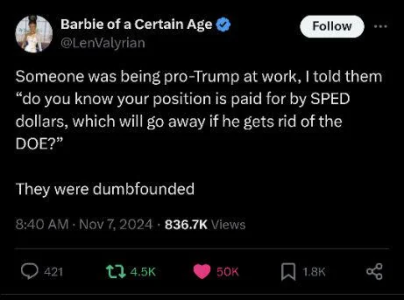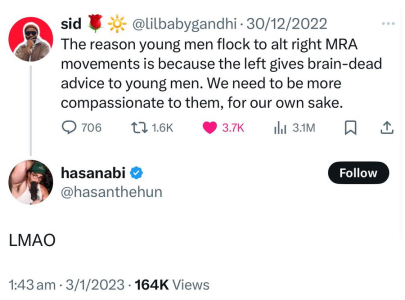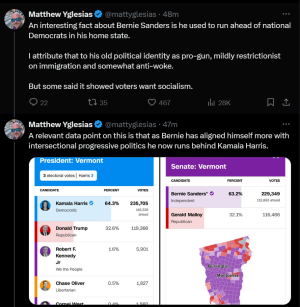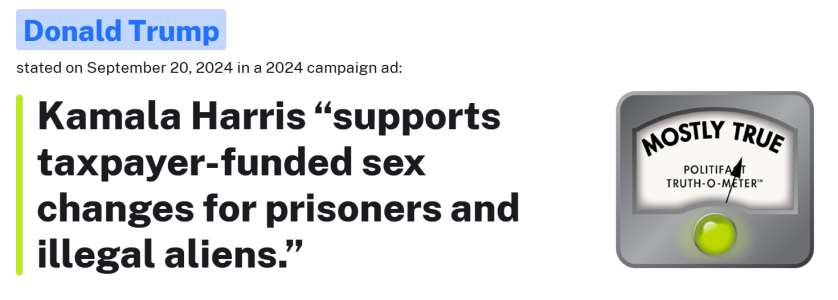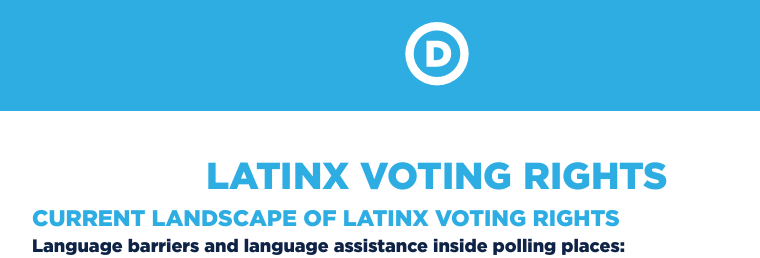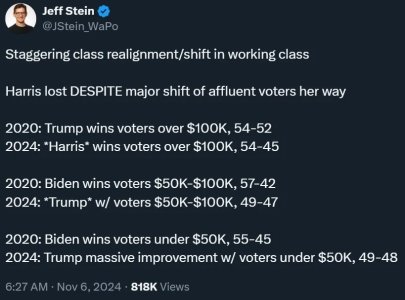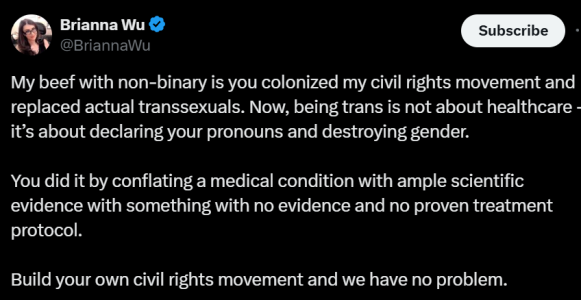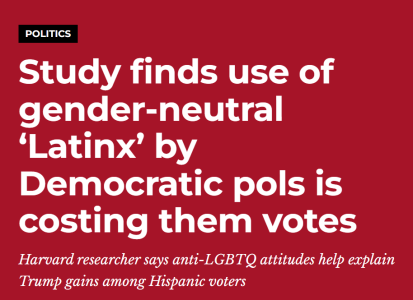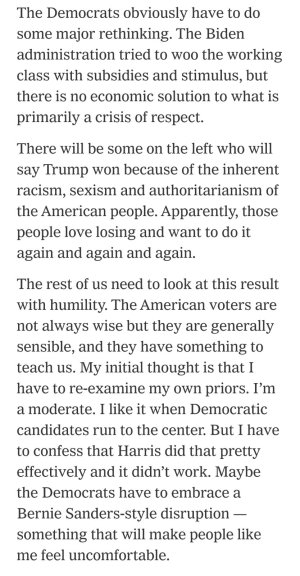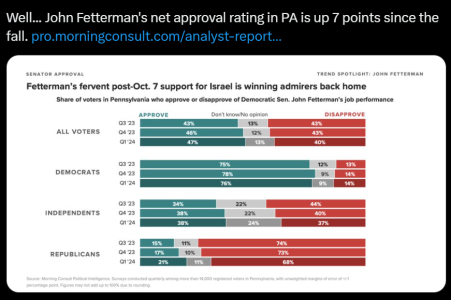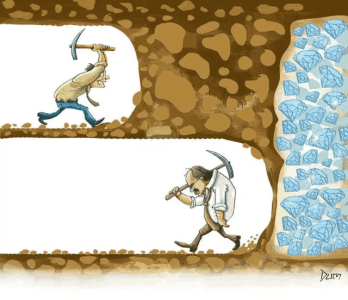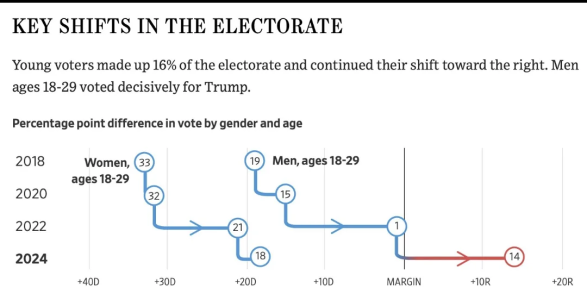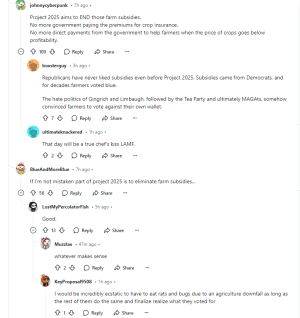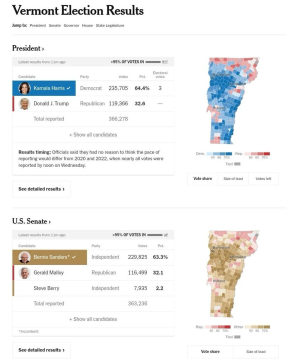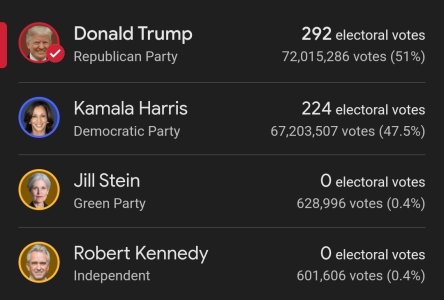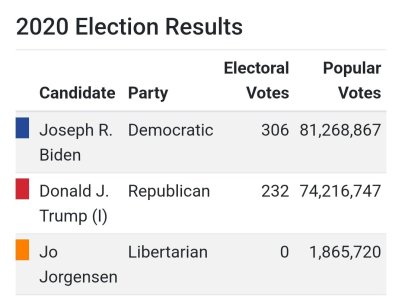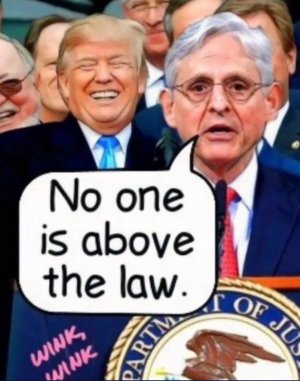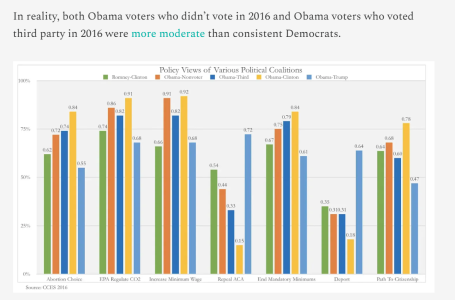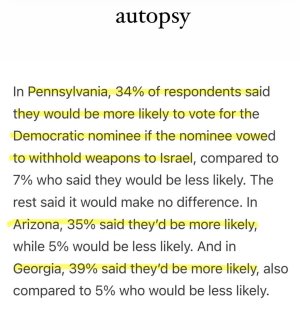What if everything we think about centrists and ideologues is wrong?
Sens. Kyrsten Sinema (D-Ariz.) and Joe Manchin III (D-W.Va.) on Capitol Hill on Sept. 30. (Jabin Botsford/The Washington Post)
The savvy journalist’s view of politics is based in part on the assumption that ideologues are problematic — they’re inflexible, they’re impractical, they care more about purity than that most noble of objectives, Getting Things Done.
Centrists and moderates, on the other hand, supposedly understand the real world and are willing to work with others to solve problems. Which is why, for instance, a bipartisan group of House centrists named themselves the
Problem Solvers Caucus.
But what if all those ideas are backward? What if it’s the ideologues who are able to get things done, and it’s the centrists who stand in the way of solving problems while they knuckle under to special interests who don’t have the welfare of the country at heart?
The current Democratic attempt to pass President Biden’s agenda is demonstrating just that.
First, we have a basic imbalance: Progressives in the House and Senate are eager, even desperate, to see the infrastructure bill and Build Back Better social policy bill pass Congress. As people with strong beliefs about policy, they’re highly motivated to make progress, even partial progress, on issues they care about.
And even when all their demands aren’t met — the final reconciliation bill will likely be less than half the size of what they hoped for — they’ll still vote for it. Joe Biden wasn’t their preferred candidate in 2020, but they worked tirelessly to get him elected, and now they’re laboring to pass his agenda.
The centrists, on the other hand, might want to see the bills pass, but for them, failure
is an option. They’re much less likely to have run for Congress because they were passionate about policy issues and social problems (not that ideologues don’t have ambition; every politician does). But if the end result is that the whole thing goes down in flames, they’ll be able to live with that.
That’s because from where centrists sit, the status quo is not so bad. Yes, there are things to be concerned about and problems to be solved, but it’s nothing that gets their blood boiling.
That’s why
progressives haven’t been able to get the centrists, especially Sens. Joe Manchin III (D-W.Va.) and Kyrsten Sinema (D-Ariz.), to say specifically what they want the Build Back Better bill to contain and what they won’t accept, which makes negotiation awfully difficult.
That general lack of urgency about addressing issues may be one reason that the Problem Solvers Caucus, which was formed in 2017,
can’t say it has actually solved any problems. On their website, these lawmakers
tout a few areas of agreement among themselves, but they haven’t managed to use their alleged problem-solving prowess to push any legislation to passage.
Which brings us to another characteristic of centrists that they don’t share with ideologues:
They’re much more susceptible to influence by special interests, whose primary goal is often to keep change from happening.
While a lack of ideological rigidity is often portrayed as a virtue, it’s also just the kind of open-mindedness corporate lobbyists are looking for. Those lobbyists don’t need Sinema to be deeply, passionately devoted to, say,
the idea that pharmaceutical companies should be free to charge Medicare whatever prices they like. They don’t need Rep. Josh Gottheimer (D-N.J.) to sincerely believe there is no higher calling than making tax laws friendly to his
private equity donors.
It’s precisely because the centrists don’t have strong beliefs that they can be influenced.
The drug pricing issue — a case where the president and most Democrats are advocating a spectacularly popular policy change that is being thwarted by the centrists — shows how the assumption that the politicians who position themselves in the middle must have their fingers on the pulse of public opinion can be completely wrong.
Perhaps they find the lobbyists’ arguments persuasive. Perhaps all those donations just give them a gentle nudge in that direction. In the end, it doesn’t really matter.
Would Manchin so reliably serve the interests of the fossil fuel industry if he didn’t earn
millions of dollars from a coal brokerage firm he founded and his son now runs? Are ads from the American Petroleum Institute
thanking him for fighting efforts to address climate change really needed to make sure he keeps up that fight?
Maybe, maybe not. But we do know that special-interest lobbying and donations will have little or no effect on ideologues such as Sen. Bernie Sanders (I-Vt.) or Rep. Pramila Jayapal (D-Wash.).
In theory, you can envision a moderate ideologue, someone whose beliefs are close to the center of our current ideological spectrum and who works with fierce determination to put those beliefs into action. But the current Democratic centrists are not that.
They’re marked by their absence of firm policy beliefs, other than the conviction that whatever liberals want, it’s too much.
And the more serious the country’s challenges are, the more we need legislators for whom the status quo is unacceptable, who actually care about whether bills pass and progress is made on urgent problems.
Obviously, if your side is out of power, the other party’s status quo centrists are your friends, because they’re likely to stand in the way of changes you don’t like. But either way, the idea that the centrists are the ones who get things done is plainly wrong. And never more so than right now.







